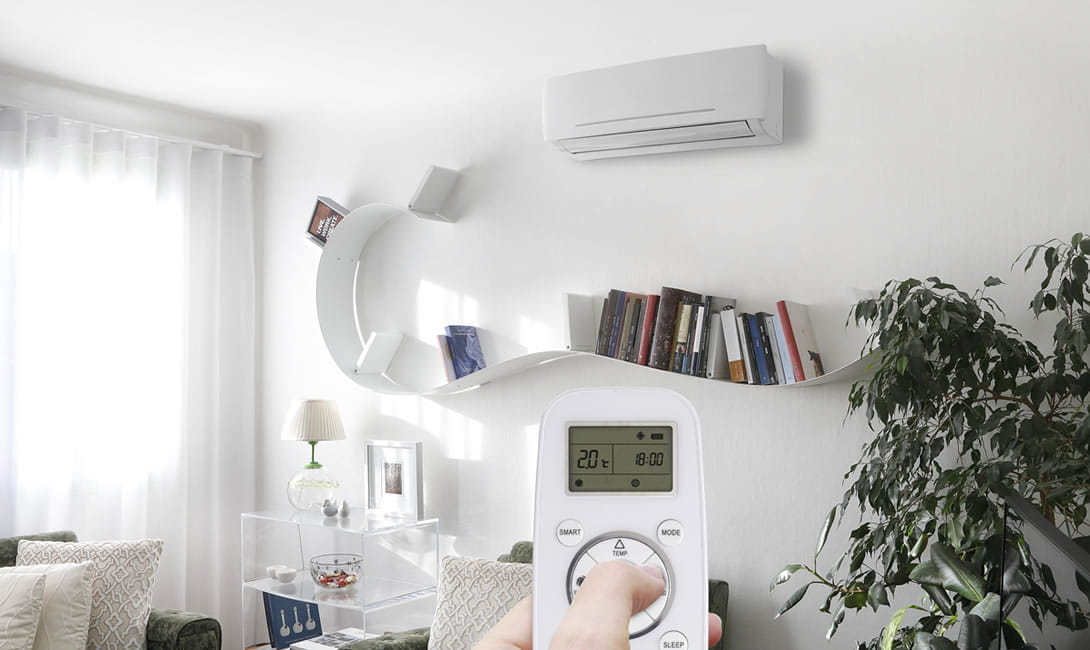- Insights
- Radiators
- Interior
Air conditioner vs. radiator for heating
Heating a home often weighs heavily on a household budget. With energy prices on the rise and the uncertainty of supply it’s not uncommon for people to look for an alternative for their heating boiler and radiators. We see that today an air conditioner with inverter technology is more and more frequently used to not only cool but also to heat the rooms in a house. What are the advantages and disadvantages of this and is the air conditioner always the right choice?
Air conditioner with inverter technology
Using an air conditioner to heat your home was far from efficient before the arrival of inverter technology. The compressor continuously switched between on and off, causing a high energy consumption and a shorter lifespan of the appliance. Luckily inverter technology now allows an air conditioner to use electricity efficiently, so that it becomes an interesting alternative for a radiator.An important note here is that this is only true when the outdoor temperatures are not excessively cold. An air conditioner can be a versatile support and a less expensive solution than gas heating, but mainly in areas that enjoy a southern climate with hot, humid summers and mild winters.
When is heating with an air conditioner a good choice?
Since an air conditioning system is greatly affected by external temperatures, heating with an air conditioner is only convenient when winter temperatures are not excessively low. If you use it below 5°c, for example, there is a risk that ice will form. In this case the system will have to use its heat alternately for heating the house and melting external ice. This significantly lowers the air conditioner’s efficiency and increases operating costs.Moreover, the split of the air conditioner is installed in individual rooms. This means it only heats the room where it’s located. This can be a great advantage since you don’t need to heat an entire central heating system, but the room needs to be sufficiently small – up to about 50 m2 – for the air conditioner to work quickly and efficiently.
A final aspect to consider is the presence of photovoltaic panels. If these are installed in sunny areas, they are efficient even in winter and can reduce the cost of heating with an air conditioner to practically zero. However, if it’s not possible to draw electricity from a renewable source, you must reckon with a higher electricity bill.
Advantages of an air conditioner
There are several reasons why a lot of people now prefer an air conditioner to radiator heating. Firstly, there is the financial aspect as the purchase and maintenance cost of an air conditioner is lower than a boiler with radiators. Especially in regions such as China, where there are numerous local air conditioner manufacturers. Add to this the charges for electricity that are lower than gas and the possibility to integrate the air conditioner with a photovoltaic system to create nearly free heating and you’ve got a very interesting financial picture.Moreover, an air conditioner is very easy to install and doesn’t require the same level of maintenance as a boiler. You only need to clean the filters once in a while. Plus, the dual use means you can easily save valuable wall space as you don’t need to install separate heat emitters.
Also in areas without gas lines or where it might be dangerous to use gas, the air conditioner can be used without concern.

